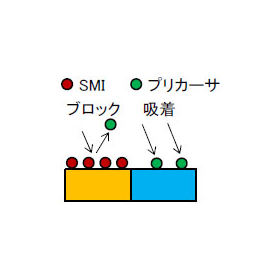High-Performance Liquid Chromatography (HPLC)
High-performance liquid chromatography (HPLC) is a method that separates and detects components in a liquid by utilizing the differences in interactions between the stationary phase and the mobile phase.
- Compounds that are relatively low molecular weight and highly polar, such as organic acids, can also be analyzed. - Low polarity compounds, such as lipids, can also be analyzed. - By using the post-column method, it is possible to eliminate the effects of interfering components that could not be completely separated. - Quantification of polymers and measurement of molecular weight distribution are possible.
basic information
By selecting the separation method and detector according to the measurement target, it is possible to qualitatively and quantitatively analyze a variety of organic compounds, ranging from low molecular weight to high molecular weight and from low polarity to high polarity.
Price range
Delivery Time
Applications/Examples of results
- Quantitative analysis of functional components in food - Quantitative analysis of organic acids and amino acids in food and industrial products - Quantitative analysis of lipids and fatty acids - Quantitative analysis of monosaccharides and polysaccharides - Quantitative analysis of polymers - Measurement of molecular weight distribution of polymers
Detailed information
-

Please consult with us first. ★ We will start by proposing an analysis plan ★ Meetings at your company are, of course, possible. We will carefully explain the analysis results and leave no questions unanswered. Please contact us at 03-3749-2525 or info@mst.or.jp!
-

We will hold a visiting seminar. ★ We offer free seminars with engineers tailored to our customers' needs ★ Depending on your requests, we will introduce analytical techniques and explain analytical data. ◆ Example seminar content - A broad explanation of MST's analytical methods - A detailed explanation of specific analytical methods from the principles - Explanation of the analytical data requested by the customer Please contact us at 03-3749-2525 or info@mst.or.jp!
Recommended products
Distributors
MST is a foundation that provides contract analysis services. We possess various analytical instruments such as TEM, SIMS, and XRD to meet your analysis needs. Our knowledgeable sales representatives will propose appropriate analysis plans. We are also available for consultations at your company, of course. We have obtained ISO 9001 and ISO 27001 certifications. Please feel free to consult us for product development, identifying causes of defects, and patent investigations! MST will guide you to solutions for your "troubles"!



















































